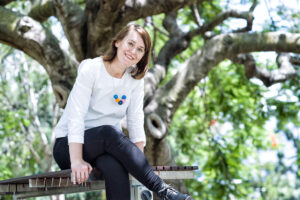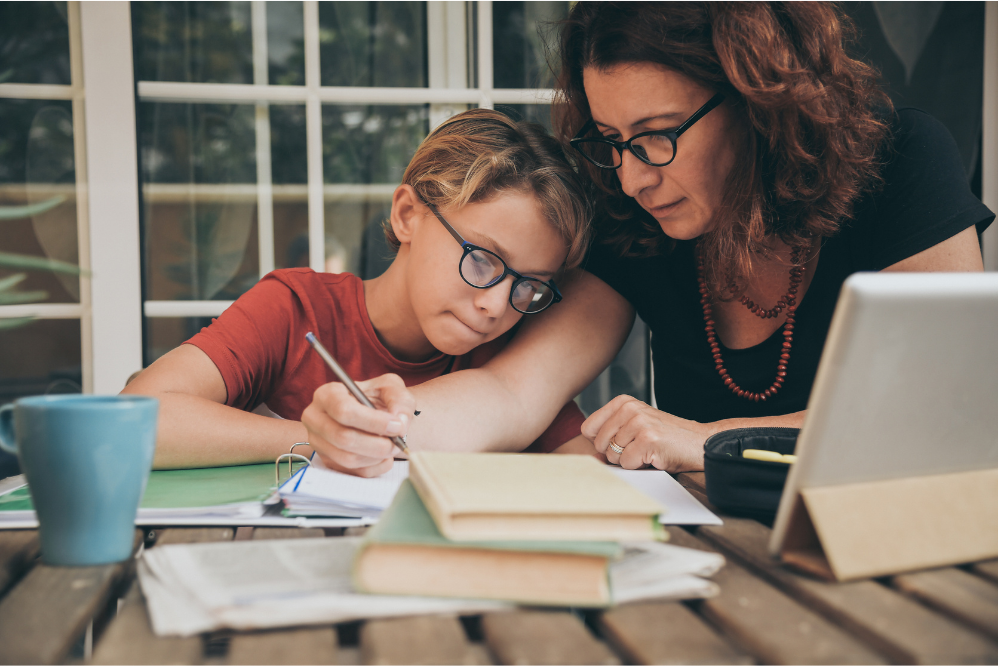You read that title and choked, right? That’s because, when you think about homeschoolers, you probably think of a conservative family trying to shelter their kids from the pernicious influence of the wider community. You likely imagine a wife who stays home while her husband earns the money.
So, when I say it’s a feminist decision to homeschool your kids, your immediate response is, “umm, no”.
In the interests of full disclosure: I consider myself a feminist, and I homeschool. I’m also a researcher who’s interested in why highly educated woman homeschool their children.
But, this isn’t all about me. It’s about the growing number of feminists who find themselves homeschooling.
Let’s start with what homeschooling is. Homeschooling is one of the fastest growing educational choices in Australia. The numbers are growing rapidly; in 2020, almost 26,000 young people or approximately six in every 1,000 school aged children in Australia homeschooled. Most homeschoolers have, at some stage, been to school. Families change to homeschool because children have bad experiences ranging from “a bully beat up my kid and nobody helped” to “my kid is Autistic but the school couldn’t help them”. After trying to make it right with the school/s, they end up homeschooling. These points are troubling.
Most people who wind up homeschooling end up there quite by accident. It could happen to you.
Interestingly, but probably not unexpectedly, most homeschoolers are women, probably because it’s considered women’s work to educate children. Women do most of the education stuff, such as teaching reading, managing homework and organising children’s social calendars. It’s fair to say, as Waring did, most of this work is unpaid and under undervalued, but should be counted in GDP.
But, surely homeschooling is even worse? I disagree. One of the main reasons for my disagreement is gender; you can break gender stereotypes if you homeschool. LGBTIQ+ kids homeschool because gender and sexuality are so heavily policed in schools. In everything from the refrain, “that’s gay Miss” to school uniforms, subject selection and teachers’ gender balance, schools teach young people only cis-gendered and straight is acceptable and privileged and being male is the crème-de-la-crème. I met a homeschooling mum a few years ago whose son identified as male but wore the girls’ uniform. She told me he’d been bullied, culminating in his being pushed into the girls’ toilets and urinated on. She brought him home to express his identity freely and without prejudice.

“I consider myself a feminist, and I homeschool,” says Rebecca English. Picture: Supplied
The biggest issue that is raised in feminist discussions of homeschool is paid work. It’s assumed homeschool mums quit work and depend on their husbands and that affects things like retirement savings but, as research suggests, women who have kids and keep working also suffer. A big myth is that all women quit paid work to homeschool, that’s not true, there are single mums who homeschool, work, and finish graduate degrees. If you have a community, like say other families who homeschool ¯\_(ツ)_/¯, it facilitates women homeschooling and working. I think of the mum, a trained ESL teacher, whose son was still not reading in year 8, in spite of going to one the best private schools in her town, so she did a tutoring course and started her own business to help her son. But, not everyone wants to work outside the home, and isn’t that okay too
My final point builds on the idea that there are horses for courses, it’s the mantra ‘girls can do anything’. And sometimes that anything is to make the best of your situation.
If your child is in the position where you have no choice but to homeschool to keep them safe, then you are exercising agency and courage in the face of difficult circumstances.
I think of the mother whose five-year-old’s severe anaphylaxis meant that even touching the classroom railing caused her to stop breathing. She told me the school’s response was to suggest the child wear five or six gloves and pull them off progressively throughout the day. She took ownership of her situation and decided, if they won’t protect my child, I will.
Maybe the problem then isn’t homeschoolers; the problem is school not keeping children safe?
That sounds like a variation on the meme, “you don’t hate Mondays, you hate capitalism”. Because, most of the problems with homeschool are problems with neo-liberal capitalism, with the way the system is organised. Doesn’t that suggest that, if schools were safe and effective, these families wouldn’t be homeschool statistics? But, if families are happy homeschooling, why is it a problem?
So, rather than going homeschoolers for being anti-feminist and complicit in their own patriarchal oppression, let’s learn a bit about why families do it. And, while we’re at it, let’s unpick the patriarchy in the schooling system, the power dynamic that turns learning into competition, something these homeschoolers are fighting. Let’s reflect on ways we could do education better, and provide options for women who choose to homeschool, so that the agency and power in a decision that radically alters the family – economically, socially and culturally – can be appreciated and applauded.
Please note: Feature image is a stock photo.
Dr. Rebecca English is a researcher, teacher and mother whose work is concerned with parenting and education. She has an interest in the ways parents make choices for their children that align with their beliefs about family, parenting and other factors. Rebecca asks questions about how families enact power and agency in their choices around education and parenting.





